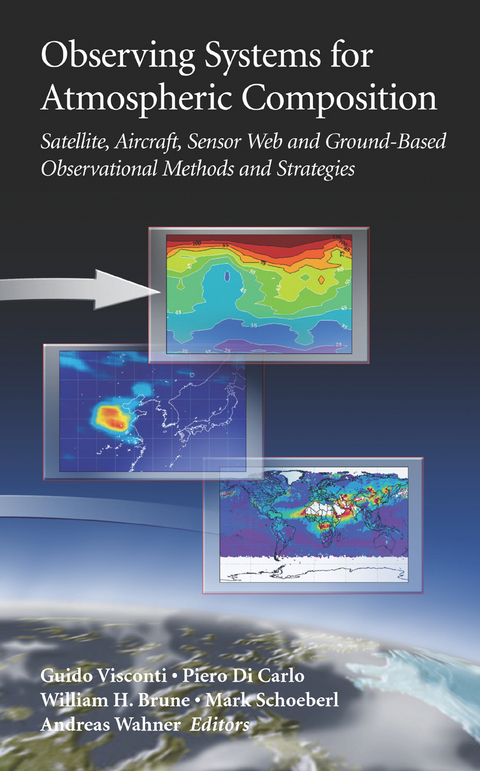
Observing Systems for Atmospheric Composition
Springer-Verlag New York Inc.
978-1-4419-2147-5 (ISBN)
Dr. Guido Visconti is professor at the Department of Physcis at l'Aquila University, Italy. He is a leading scientist in the field of remote sensing and has written and edited several books, and made numerous other contributions to the field. The other editors with a wealth of knowledge and experience are affiliated to respectively l'Aqulia University (Dr. Di Carlo), Penn State University (Dr. Brune), NASA Goddard Space Flight Center (Dr. Schoeberl) and Forschungszentrum Jülich (Dr. Wahner).
Observations by Satellites.- Air-Quality Study from Geostationary/High-Altitude Orbits.- Aerosol Forcing and the A-Train.- Total Ozone from Backscattered Ultraviolet Measurements.- The EOS Aura Mission.- MIPAS experiment aboard ENVISAT.- Aircraft and Ground-Based Intensive Campaigns.- Probing the Atmosphere with Research Aircraft-European Aircraft Campaigns.- MOZAIC -Measuring tropospheric constituents from commercial aircraft.- Uninhabited Aerial Vehicles: Current and Future Use.- U.S. Ground-Based Campaign -PM Supersite Program.- Ground-Based Networks.- Ozone from Soundings: A Vital Element of Regional and Global Measurement Strategies.- LIDAR Networks.- U.S. Federal and State Monitoring Networks.- Autonomous Systems and the Sensor Web.- Comparison of Measurements – Calibration and Validation.- Output of the Observational Web.- The Sensor Web: A Future Technique for Increasing Science Return.- Fundamentals of Modeling, Data Assimilation, and High-Performance Computing.- Inverse Modeling Techniques.
| Zusatzinfo | 10 Illustrations, color; 50 Illustrations, black and white; XII, 244 p. 60 illus., 10 illus. in color. |
|---|---|
| Verlagsort | New York, NY |
| Sprache | englisch |
| Maße | 155 x 235 mm |
| Themenwelt | Naturwissenschaften ► Biologie ► Ökologie / Naturschutz |
| Naturwissenschaften ► Geowissenschaften ► Geografie / Kartografie | |
| Naturwissenschaften ► Geowissenschaften ► Geologie | |
| Naturwissenschaften ► Physik / Astronomie ► Angewandte Physik | |
| Technik ► Bauwesen | |
| Technik ► Umwelttechnik / Biotechnologie | |
| ISBN-10 | 1-4419-2147-8 / 1441921478 |
| ISBN-13 | 978-1-4419-2147-5 / 9781441921475 |
| Zustand | Neuware |
| Informationen gemäß Produktsicherheitsverordnung (GPSR) | |
| Haben Sie eine Frage zum Produkt? |
aus dem Bereich


